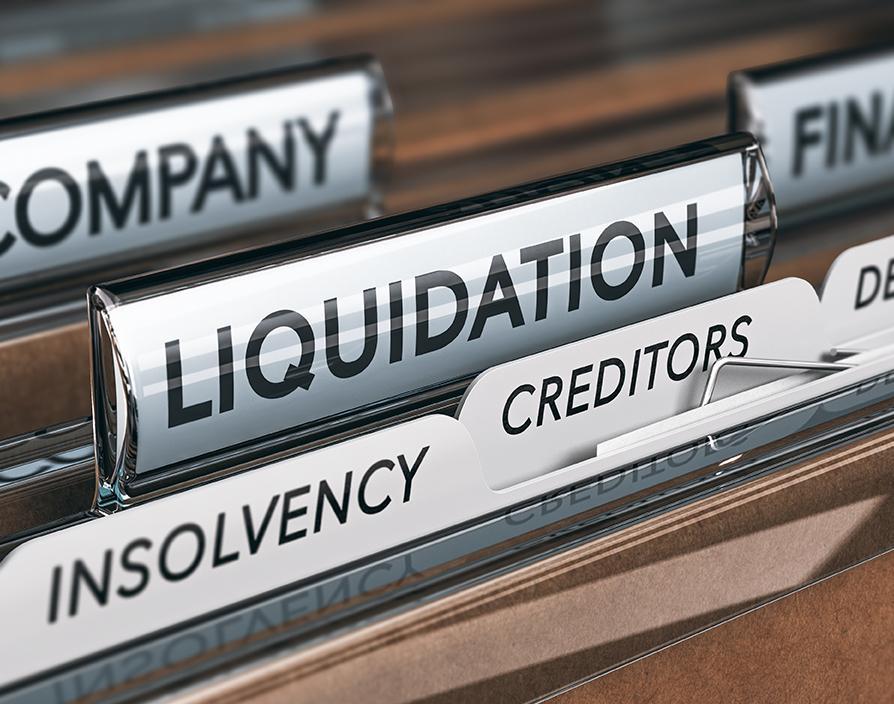The Ultimate Guide To Insolvency Practitioner
The Ultimate Guide To Insolvency Practitioner
Blog Article
7 Easy Facts About Insolvency Practitioner Explained
Table of ContentsSee This Report about Insolvency PractitionerThe Of Insolvency PractitionerGet This Report about Insolvency PractitionerInsolvency Practitioner Can Be Fun For EveryoneExcitement About Insolvency PractitionerOur Insolvency Practitioner IdeasThe Basic Principles Of Insolvency Practitioner
Insolvency is when responsibilities are higher than the worth of the business, or when a borrower can not pay the financial obligations they owe. A company can end up being bankrupt because of a variety of situations that cause poor capital. When confronted with insolvency, an organization or individual can call creditors directly and restructure financial obligations to pay them off.
Organization proprietors may contact creditors straight and restructure financial obligations right into more manageable installations. Financial institutions are typically amenable to this method due to the fact that they want to be settled and prevent losses, even if the payment is on a delayed timetable.
The owner develops a proposal detailing exactly how the debt might be reorganized utilizing price reductions or other prepare for support. The proposal reveals creditors exactly how the business may generate sufficient capital for profitable operations while paying its financial obligations. Commonly, a forgiven debt might be thought about revenue by the Internal Income Solution (IRS).
The Single Strategy To Use For Insolvency Practitioner
When a company needs to pay raised rates for items and solutions, the firm passes along the price to the customer. As opposed to pay the raised price, many consumers take their service elsewhere so they can pay much less for an item or service. Shedding clients results in losing income for paying the company's creditors.
The company may end up paying large amounts of cash in problems and be incapable to proceed procedures. When procedures discontinue, so does the business's revenue. Absence of revenue leads to unsettled expenses and lenders requesting money owed to them. Some firms become bankrupt due to the fact that their items or services don't evolve to fit customers' transforming requirements.
Insolvency Practitioner Things To Know Before You Get This
Expenditures surpass earnings and expenses stay overdue. Cash-flow insolvency occurs when a firm has the properties to cover their debts however they are in the incorrect kind, such as real estate instead of liquid funds. Balance-sheet insolvency, on the other hand, suggests a lack of possessions in any type of kind to cover financial debts.
The IRS states that a person is financially troubled when the total responsibilities surpass total possessions. Insolvency Practitioner. A bankruptcy, on the various other hand, is an actual court order that great site depicts exactly how a financially troubled individual or service will settle their creditors, or just how they will sell their possessions in order to make the payments
Insolvency Practitioner Things To Know Before You Buy
When a company or person is insolvent, they can not explanation fulfill their financial commitments. Insolvency is not the very same as bankruptcy, although a business that has come to be insolvent might file for insolvency. Bankruptcy is the state of not being able to pay your responsibilities while personal bankruptcy is a legal process to release your debts.
Recognizing the elements that can cause insolvency, such as overspending, can assist you protect against insolvency and its effects.
The Best Strategy To Use For Insolvency Practitioner
It is well understood that supervisors and police officers of corporations (and managers of minimal responsibility companies) owe fiduciary tasks to their companies and their investors (or members). These fiduciary responsibilities are specified by state laws and, though there are variants from state to state, they usually consist of an obligation of commitment and an obligation of care.
The obligation of care needs directors and policemans to exercise diligence, to make informed decisions, and to act in excellent belief to ensure that their actions are in the finest interest of the company. Though beyond the extent of this conversation, some states enable these tasks to be limited either by so noting in the business records or adhering to other requirements.
Getting My Insolvency Practitioner To Work
Beware why not look here about giving shareholders preferential treatment at the expense of creditors (e.g., accrediting and moneying a reward or a stock redemption). Beware about favoritism between classes of investors. Make practical initiatives to discover all the facts prior to taking a details strategy; directors ought to genuinely think that any type of decisions made remain in the ideal interests of the corporation in its totality (i.e., choices will be evaluated in hindsight in light of the result of such actions on the firm).
In any type of bankruptcy or bankruptcy proceeding, payments made to specific creditors at the expenditure of other creditors can be clawed back, specifically if there is some connection between the firm and the financial institution. Think about proposing at a yearly shareholder conference (or any type of various other meeting of investors) a resolution verifying that all prior service decisions and activities taken by the supervisors and policemans of the firm were taken in excellent faith after a workout of sensible treatment.
The 30-Second Trick For Insolvency Practitioner
Totally disclose any type of personal or company partnerships with events beyond of transactions involving the company to stay clear of the look of a conflict of rate of interest. In examining possible fund elevating transactions or a sale of assets of the distressed company, know that these deals might be inspected later on in light of any subsequent growth of directors' fiduciary tasks to consist of lenders.
Report this page